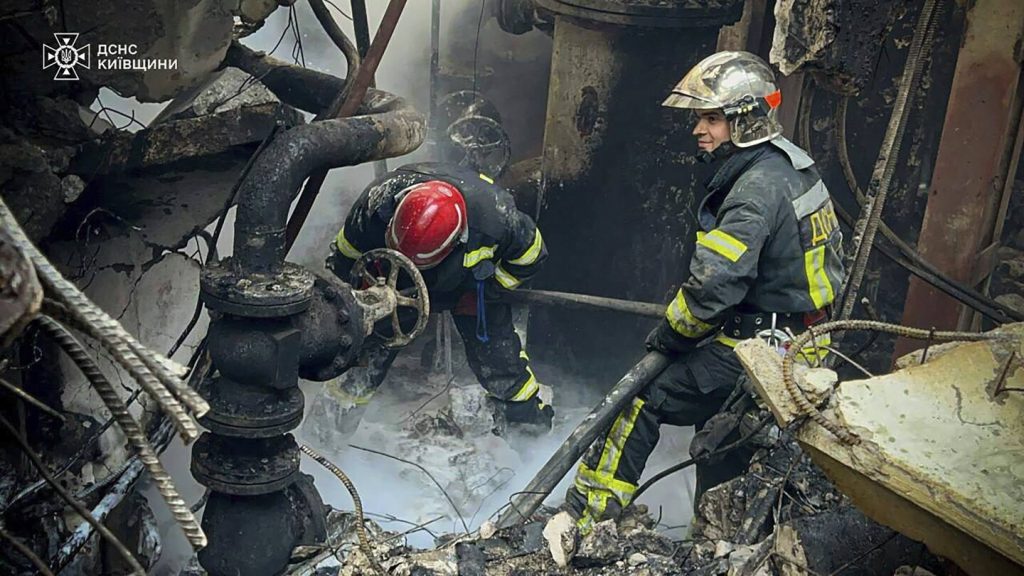A recent missile and drone attack targeted Ukrainian energy infrastructure, resulting in the destruction of one of Ukraine’s largest power plants, the Trypilska plant. The attack also damaged other energy facilities in the region. The plant, which supplied electricity to millions of customers, was heavily damaged, with the transformer, turbines, and generators destroyed. Workers at the plant hid in a shelter as the attack took place, saving their lives but watching helplessly as the plant burned. The aftermath of the attack left rescuers dismantling rubble for hours, highlighting the devastating impact of such strikes on critical infrastructure.
Russian President Vladimir Putin justified the attacks on Ukrainian energy facilities as a response to Ukrainian strikes on Russian oil refineries. The Trypilska plant was a significant energy supplier for the Kyiv, Cherkasy, and Zhytomyr regions, but luckily, no customers lost power due to the grid’s ability to compensate for the loss. However, the long-term consequences of the strikes could still be felt as the demands for electricity increase in the summer months. The attacks on energy infrastructure were not limited to the Trypilska plant, as at least 10 other strikes damaged energy facilities in Kharkiv, leaving over 200,000 people without power in the region.
Ukraine’s largest private energy operator, DTEK, described the series of strikes as one of the most powerful attacks this year, demonstrating the severity of the situation. Energy Minister Herman Halushchenko emphasized the magnitude of the missile attack on the energy sector, underscoring the significant impact on Ukraine’s energy security. The attacks on energy facilities have intensified in recent months, with previous attacks causing widespread blackouts across the country. The volume and accuracy of these attacks have raised alarm among Ukrainian officials and highlighted the urgent need for better protection of energy assets.
The renewed strikes on Ukrainian energy infrastructure have put the country’s defenders on high alert and prompted officials to seek more effective ways to safeguard critical assets. The ability to make quick repairs and protect against future attacks has become a top priority for Ukraine’s leadership. Despite the pleas for additional air defense systems to fend off such attacks, the supplies have been slow in arriving. The deteriorating situation has left officials feeling defenseless against the relentless attacks on energy facilities. The challenges faced by Ukraine in defending against these attacks underscore the need for continued support and resources to protect vital infrastructure.
The ongoing attacks on Ukrainian energy infrastructure have tested the country’s resilience and ability to recover from significant disruptions. The attacks have highlighted the vulnerability of critical energy assets and the importance of developing robust defense mechanisms. The lack of adequate air defense systems to counteract missile attacks has left officials concerned about the country’s ability to defend against future incursions. The aftermath of the recent missile and drone attack serves as a stark reminder of the ongoing conflict in the region and the devastating impact it has on the everyday lives of Ukrainian citizens. The international community must continue to support Ukraine in its efforts to protect its energy infrastructure and ensure the safety and security of its people.


